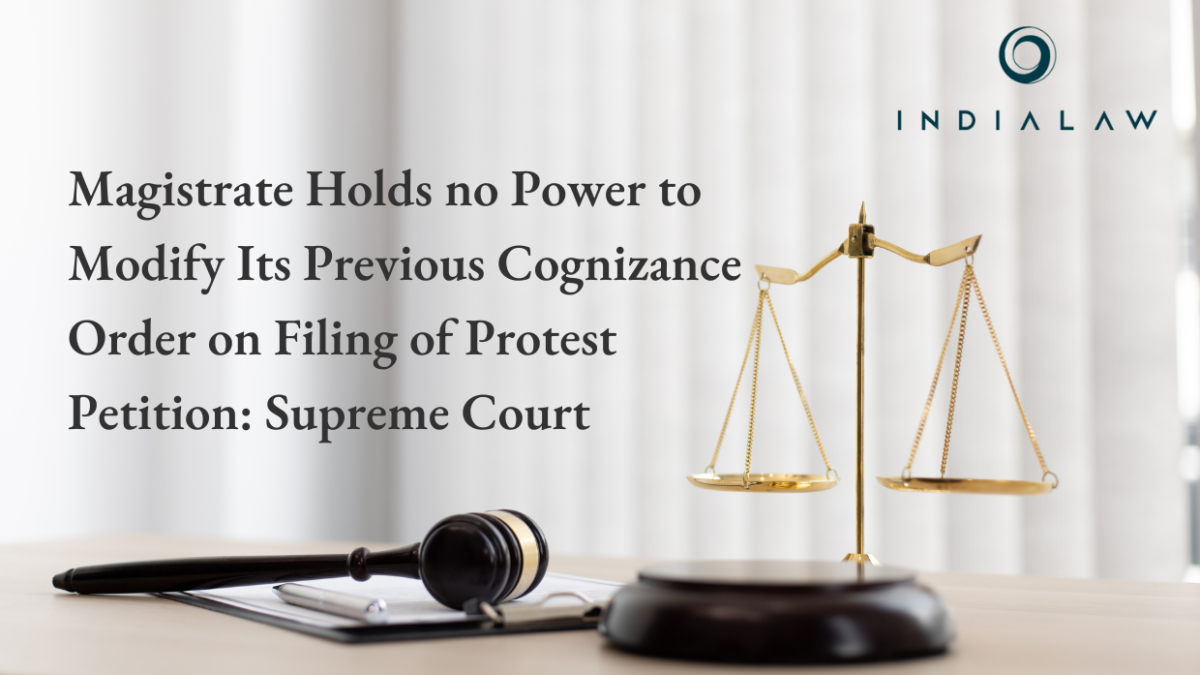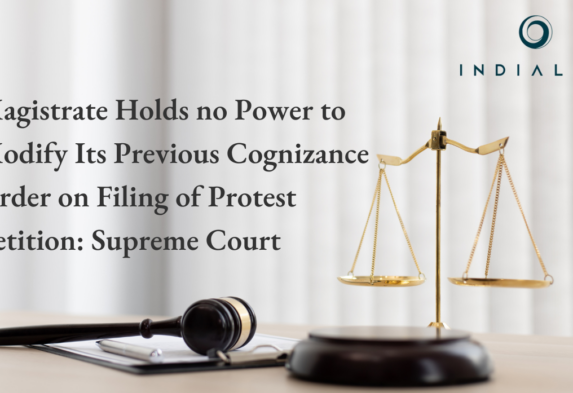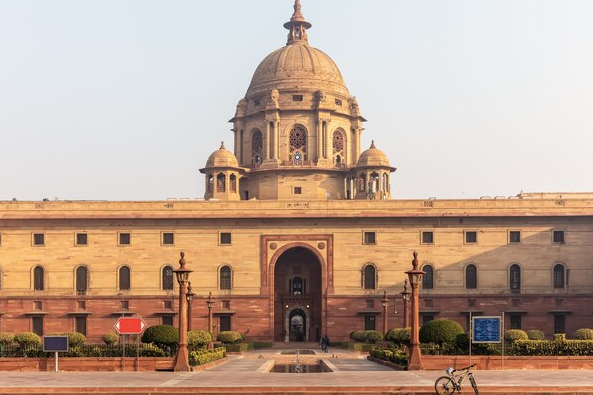Magistrate Holds no Power to Modify Its Previous Cognizance Order on Filing of Protest Petition: Supreme Court


In a notable judgment, the Supreme Court held that the Judicial Magistrate cannot entertain a protest petition against its own order wherein the cognizance has already been taken on a final report.
Ramakant Singh and others v. The State of Jharkhand and another, 2023 LiveLaw (SC) 988
Table of Contents
Facts of the case
A First Information Report (“FIR”) was registered against Dhananjay Singh (deceased) for committing the offence punishable under Sections 326, 307 read with Sections 34 and 302 of the Indian Penal Code, 1860 (“IPC”) and Section 27 of the Arms Act, 1959. The FIR mainly contained allegations against Gupteshwar Singh and other accused were alleged to be present at the crime scene.
In the final report submitted by the Crime Investigation Department (“CID”), it was recorded that no material was found against the appellants. On 9th April 2009, based on the charge sheet filed by the CID, the Chief Judicial Magistrate (“CJM”) took cognizance only against accused-Gupteshwar Singh.
The second respondent’s father filed a protest petition raising an objection to the order of the CJM whereby the cognizance was taken only against one accused. Subsequently, while considering the protest petition, the CJM passed another order on 3rd November 2009 and took cognizance against the other accused persons.
A petition before the High Court was filed under Section 482 of the Criminal Procedure Code (CrPC) by the other accused against the order dated 3rd November 2009 of the CJM. The High Court rejected the petition while placing reliance on the Supreme Court’s judgment in the case of NupurTalwar v. CBI and Anr. (2012) 2 SCC 188.
The High Court noted that, depending on the facts of each case, the Magistrate can proceed based on a protest petition in adherence to the procedures outlined under Sections 200 and 202 of the CrPC.
An appeal was filed before the Hon’ble Supreme Court.
The issue before the Supreme Court
Whether after receiving a final charge sheet and recording that no case was made out of commission of offence against the accused, the Judicial Magistrate can subsequently take cognizance under Section 190(1)(b) of the CrPC?
Contentions of the Appellants
The contentions of the Appellants were that the issue in NupurTalwarCase was different, as the dictum laid down was that the cognizance of a protest petition against a closure report filed by the investigating agency can be taken by a Magistrate.
Observations of the Supreme Court
The bench comprising Justices Abhay S Oka and Pankaj Mithalwere dealing with the appeal challenging the order of the High Court. The Hon’ble Court held that on filing of a protest petition, the Magistrate holds no power to modify its previous order of taking cognizance.
The Supreme Court observed that“Such a course was not permissible as it was not open for the learned Chief Judicial Magistrate to entertain a protest petition against his earlier order of taking cognizance.”
It noted that the order dated 3rd November 2009 was a modification of its previous cognizance order dated 9th April 2009, which is impermissible, as such an authority is not vested with the Magistrate to alter its earlier order of taking cognizance.
Decision of the Supreme Court
The Hon’ble Supreme Court found strength in the arguments of the Appellants and observed that the lower court lacked jurisdiction to entertain a protest petition challenging its previous order to proceed with the case.
Further, the Supreme Court remarked that the High Court had overlooked pertinent legal Aspects.
The Supreme Court observed that NupurTalwarCase involved a different scenario where the protest petition was filed against an order taking cognizance, presenting a different legal context. The Court allowed the Appeal and set aside the orders of the High Court and the order dated 9th April 2009 passed by the CJM.




